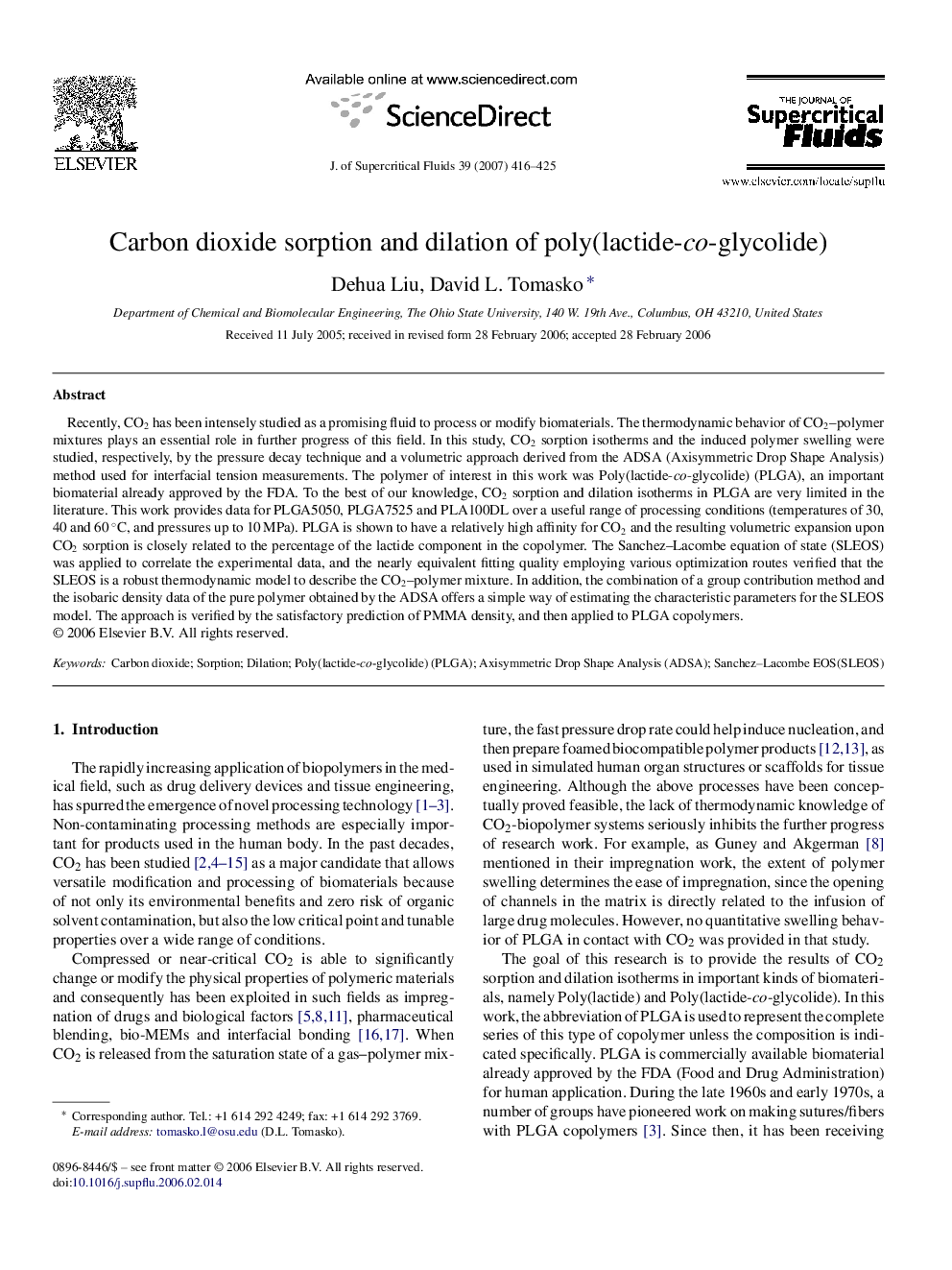| Article ID | Journal | Published Year | Pages | File Type |
|---|---|---|---|---|
| 232141 | The Journal of Supercritical Fluids | 2007 | 10 Pages |
Recently, CO2 has been intensely studied as a promising fluid to process or modify biomaterials. The thermodynamic behavior of CO2–polymer mixtures plays an essential role in further progress of this field. In this study, CO2 sorption isotherms and the induced polymer swelling were studied, respectively, by the pressure decay technique and a volumetric approach derived from the ADSA (Axisymmetric Drop Shape Analysis) method used for interfacial tension measurements. The polymer of interest in this work was Poly(lactide-co-glycolide) (PLGA), an important biomaterial already approved by the FDA. To the best of our knowledge, CO2 sorption and dilation isotherms in PLGA are very limited in the literature. This work provides data for PLGA5050, PLGA7525 and PLA100DL over a useful range of processing conditions (temperatures of 30, 40 and 60 °C, and pressures up to 10 MPa). PLGA is shown to have a relatively high affinity for CO2 and the resulting volumetric expansion upon CO2 sorption is closely related to the percentage of the lactide component in the copolymer. The Sanchez–Lacombe equation of state (SLEOS) was applied to correlate the experimental data, and the nearly equivalent fitting quality employing various optimization routes verified that the SLEOS is a robust thermodynamic model to describe the CO2–polymer mixture. In addition, the combination of a group contribution method and the isobaric density data of the pure polymer obtained by the ADSA offers a simple way of estimating the characteristic parameters for the SLEOS model. The approach is verified by the satisfactory prediction of PMMA density, and then applied to PLGA copolymers.
